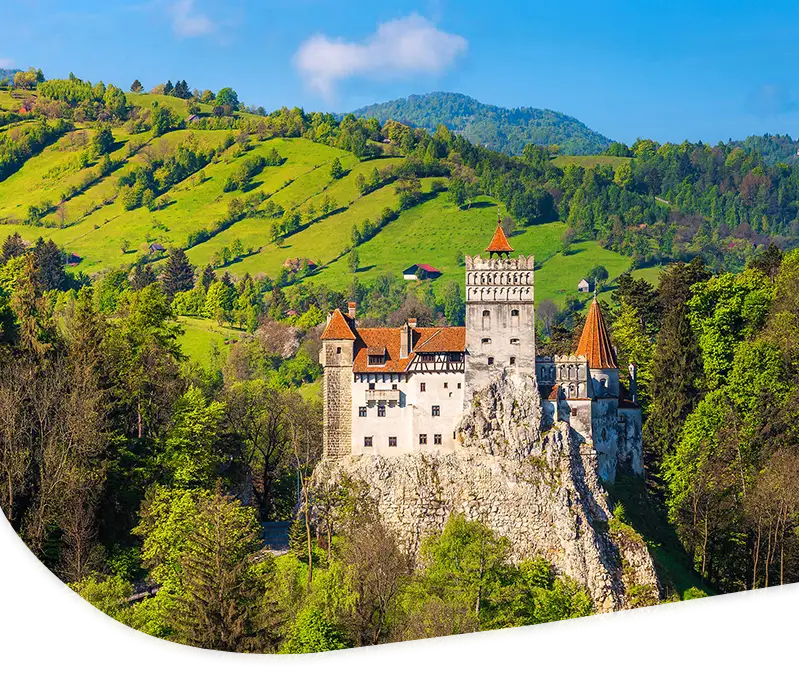Labor Laws in Romania
- Annual Leave: 20 days
- Public Holidays: 11
- Workweek: 40 hours per week.

Get everything you need to hire talent in Romania. Download our comprehensive guide for hiring in this expanding market.
Capital:
Bucharest
Language:
Romanian
Currency:
Romanian leu
Please enter the following information:
Romania has a flat personal income tax rate of 10%.
The standard VAT rate in Romania is 19%.
Employer Contributions
Employee Contributions
Here are the main work visas available in Romania:
Setting up a company in Romania can be expensive and complex. Global Expansion simplifies your entry into this market.
We handle hiring, HR, and payroll while ensuring compliance with local regulations, all without establishing a local entity.
Our Romania Employer of Record (EOR) solution lets you focus on your business growth.